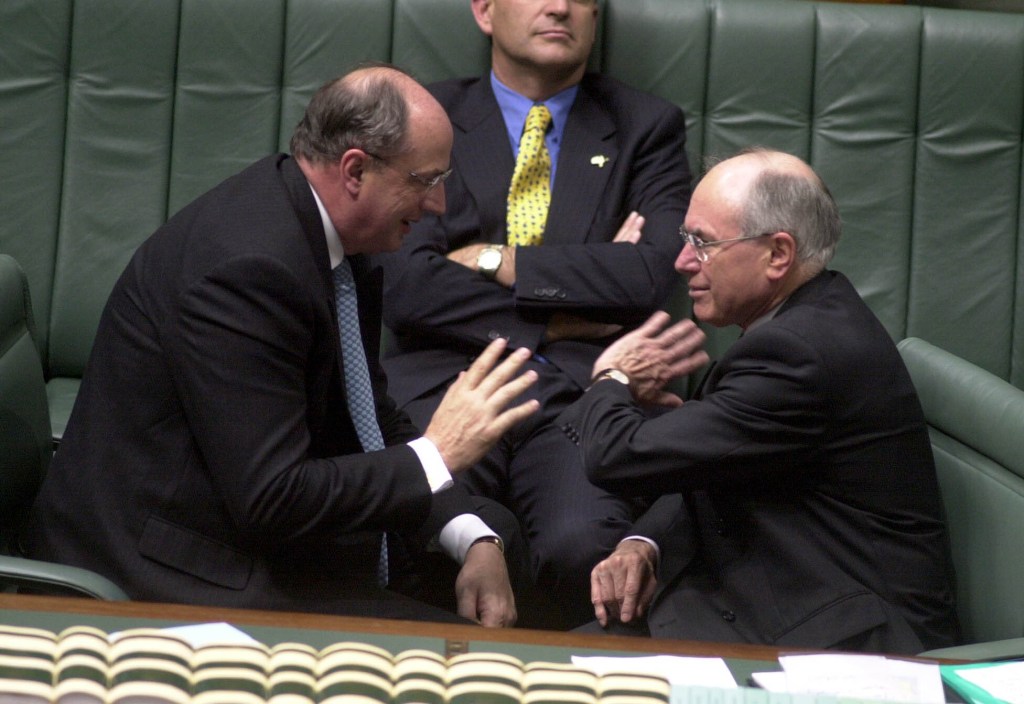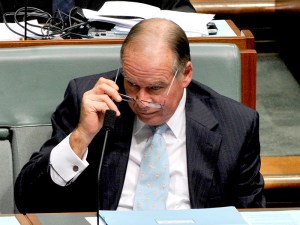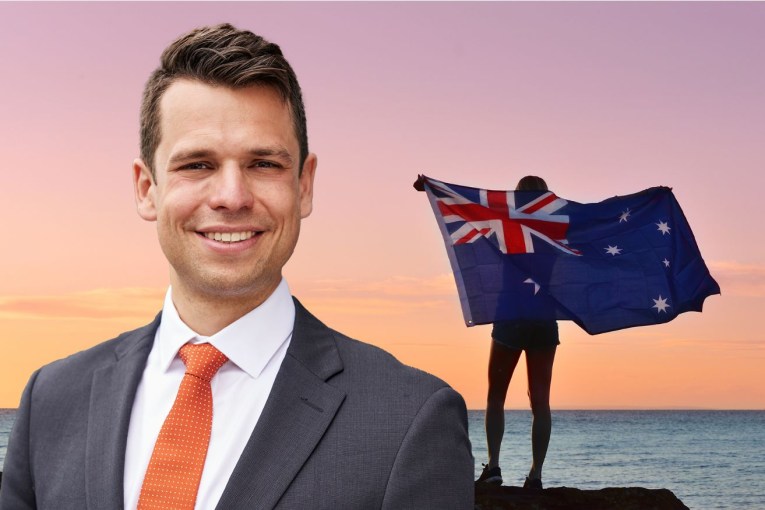Paul Bongiorno: Who you trust is always the essential question for voters


Photo: AAP/TND
Anthony Albanese is not the first prime minister to be branded a liar by his political opponents or dedicated critics in the media, and he won’t be a pioneer in surviving the storm of confected outrage greeting his redesign of the stage-three tax cuts.
If Albanese loses his job as Prime Minister, either at the hands of his colleagues – highly unlikely, or by the rejection of voters at the next election, it will not be because he has made the six-year-old design of the last stage of Scott Morrison’s tax changes fairer and better.
It will be because he has not won the confidence of a majority of Australians to trust him as a reliable custodian of the national interest.
This trust is not based on perceptions of his honesty but more broadly on what he and his government are delivering and whether what is on offer is seen as superior to the alternative.
This goes a long way to explain why John Howard, a prime minister dubbed “mean and tricky” and who spoke of “core” and “non-core” promises when he broke election commitments, went on to survive 11 years as our second-longest serving leader.

‘Mean and tricky’: John Howard (seen with Peter Reith) survived to become our second-longest serving leader. Photo: AAP
When he announced the 2004 election – after being pilloried for lying about “children overboard” in 2001 and playing fast and loose with petrol taxes after the introduction of the GST – Howard made trust the acid test of him and his government.
It is instructive to remember the breathtaking boldness when Howard shocked journalists at the news conference when he said the election would be about trust.
“Who do you trust to keep the economy strong and protect family living standards?” he asked. “Who do you trust to keep interest rates low? Who do you trust to lead the fight on Australia’s behalf against international terrorism?”
As the campaign progressed Labor’s flaky Mark Latham saw his opinion poll lead whittled away, doubts about his suitability to be a stable and reliable PM evaporated on the eve of the election when in front of the TV cameras he aggressively shook Howard’s hand almost yanking Howard’s arm from its socket.
All prime ministers learn on the job; it was said of Howard he made every mistake in the book but learned from every one of them.
A matter of trust
Albanese certainly has much to learn from his first two years in the job.
His biggest mistakes in political communication and nous were made early. On election night he unequivocally promised a referendum this term on the Indigenous Voice to Parliament, which gave him little room to pivot when the Coalition came out against it.
And a few weeks later he was just as misguided when he was asked on the Seven Network if the stage-three tax cuts would be delivered in full as he promised. He said “my word is my bond” and didn’t leave it there.
He added: “I’ve always been a man of my word, and I believe that when you go to an election, you make commitments, you should stick with them”.
A wiser answer surely would have been to commit to always doing what is right by Australians and open the way for responding to changing circumstances.
Even if this triggered a firestorm it would have also prompted a debate on the flaws of the Scott Morrison-designed flattening of our progressive tax system and the inherent unfairness made worse by a cost-of-living crisis hitting low- and middle-income Australia.
As it is, that debate is raging now. But the Liberals and Nationals – despite the almost hysterical condemnation from the Murdoch media conglomerate assisting the claim that this broken promise is the most egregious lie in history – are caught in a political wedge of their own making.
By the way, no one in government believes Albanese lied – he fully intended to keep this promise and was reluctantly mugged by reality to break it.
Morrison as treasurer and then as prime minister could have introduced his tax package in one hit or at least have brought stage three forward to address what is now being decried as the evil of bracket creep.
The Coalition didn’t do it because these reforms were always contentious and primarily designed as a time bomb to blow up a future Labor government.
Labor’s amendments in 2019 splitting lower income tax relief from the top end largesse were defeated by Jacqui Lambie’s vote in the Senate.
She now regrets it, but it left the then opposition with the choice of denying most Australians tax relief or having that fight on another day.
That other day has arrived and it is Peter Dutton and David Littleproud who face the choice of giving all Australians a tax cut or not.
Action versus reaction
The difference between being in government and opposition is becoming painfully clear for Dutton and his mates.
It is also something Albanese has belatedly come to appreciate.
Governments can and are expected to do things. Oppositions can only promise or decry.

Liberal independent Russell Broadbent. Photo: AAP
The quantum of the stage-three tax cuts virtually remains unchanged. The broken promise bit is giving those on the highest incomes a $4500 tax cut rather than a $9000 one and then giving all taxpayers relief, especially those under $45,000 who were going to miss out.
Is Dutton really going to vote against this while still trying to claim “taxes will always be higher under Labor”?
Liberal independent Russell Broadbent believes Dutton will, while saying he will not hesitate to vote for the package which he believes is still too generous to the top end.
Broadbent represents a regional Victorian electorate which has many more lower-income earners than metropolitan seats; so far the Nationals whose regional electorates are among the poorest in the country are refusing to break with their Liberal partners.
No wonder Albanese is spending so much time in regional electorates since the “change of position”.
The byelection in the outer metropolitan seat of Dunkley will be the first test of who voters trust to look after them better.
Paul Bongiorno AM is a veteran of the Canberra Press Gallery, with more than 40 years’ experience covering Australian politics








